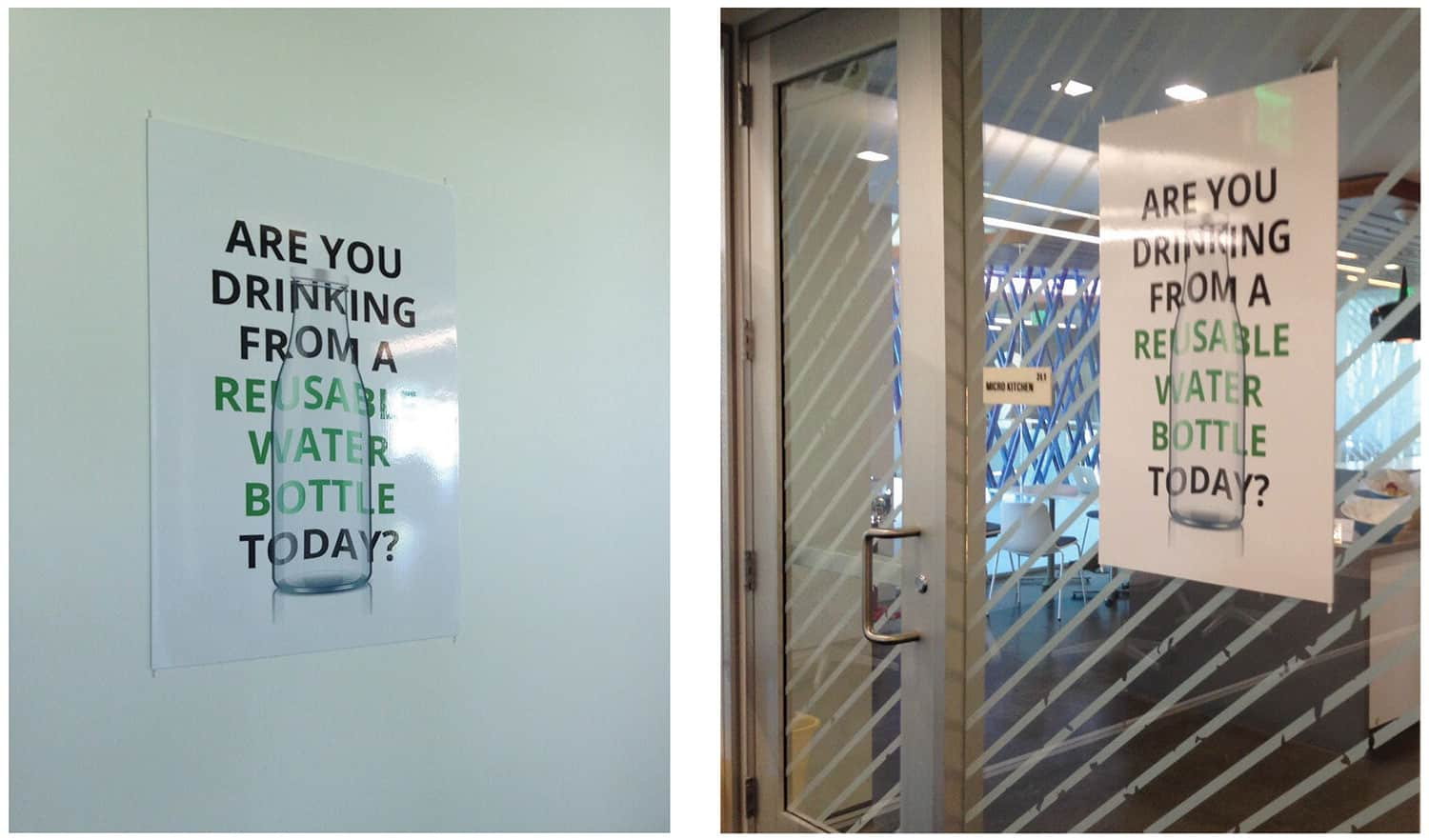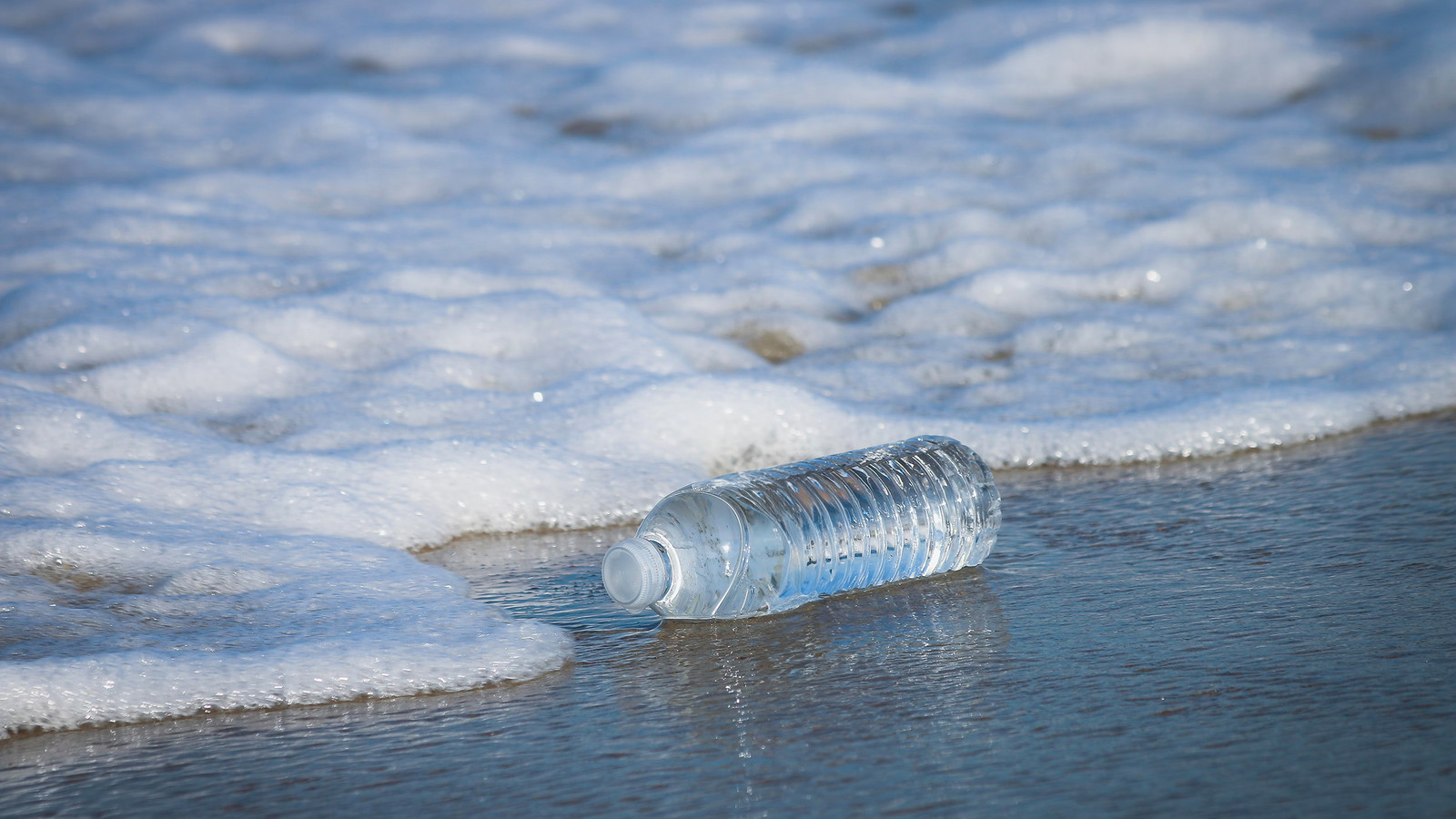

Are You Drinking From a Reusable Water Bottle Today?
How well-placed reminders help consumers build sustainable habits.
Based on research by Eleanor Putnam-Farr (Rice Business), Ravi Dhar (Yale), Margaret Gorlin (Codesmith), Jane Upritchard (Bon Appetit Management Company), Michelle Hatzis (Google), and Michiel Bakker (Google)
Key findings:
- Many people are already motivated to engage in climate-friendly behaviors, like using a reusable water bottle or shopping bag
- Reminders that come earlier in the decision-making process are more effective at changing habits
- Climate-friendly habit changes can be made without sacrificing consumption
Climate change is a well-known problem with many well-known solutions. One of them is to increase the use of reusable water bottles and shopping bags – items that most of us have but easily forget about and may present an opportunity for effective messaging.
It’s a pervasive problem, but one that Rice Business professor Eleanor Putnam-Farr has been studying along with fellow researchers. Their question: what are the best ways to remind people to make more sustainable choices? Specifically, the team wanted to know when in a consumer’s habit development are reminders most effective?
It might seem intuitive to remind people about their reusable bottles at the point they would be used — for example, by the water cooler. However, reminders that come so late in the decision-making process are ineffective for a few reasons. First, most people already know that reusable goods are better for the environment.
According to previous research, almost 80 percent of Americans believe that they understand global warming “very” or “fairly” well. Most likely, if you’re reminded to use a reusable water bottle when you’re not thinking about drinking water, the message is redundant. Worse: If you’re reminded to use a reusable water bottle after you’ve already picked up a single-use plastic container, you’ll likely experience counterproductive feelings of aversion and guilt.

The researchers proposed that sustainability reminders would be more effective when placed earlier in the decision-making process and predicted that early specific reminders would generate a routine behavior, if there is a clear reward. To assess their hypothesis, the researchers put up reminder posters in the office of a large tech company, either near the desks of participants, where they generally kept their reusable bottles, or near the water cooler.
Over the course of seven weeks, the team measured how much water was dispensed and how many single-use plastics, like water bottles and disposable cups, were used. One of the reminder messages emphasized drinking water generally (“Are you drinking enough water today?”), and the other specifically targeted reusable bottles (“Are you drinking from a reusable bottle today?”).
Before the experiment, 50% of participants said they use single-use bottles on at least some occasions, the most common reasons being convenience or forgetfulness. During the experiment, the amount of water dispensed from the water cooler increased by an average of 1.58 gallons per day. The consumption of single-use bottled water didn’t change much during the study period, but the use of disposable cups decreased significantly.
To test whether employees had formed habits around using reusable water bottles, the researchers measured water consumption in the office for two weeks after the posters were taken down.
They found that the posters led to an average increase of two gallons per day of water dispensed to reusable containers in the two weeks after they were removed. This is equivalent to reducing plastic bottle usage by 16 bottles per day from one office space, or 8% of the daily average. Overall, water consumption wasn’t hurt by removing the posters, either. In fact, there was a 30% increase in dispensed water during and after the study.
The office experiment supports the idea that early specific reminders increase desired behavior and promote habit formation. There are several challenges to crafting effective messages that support sustainability goals, but office experiment supports the idea that early specific reminders increase desired behavior and promote habit formation.
Reminders need to be positioned at the right moment of the decision-making process, so consumers feel inspired to change instead of disappointed for failing. To have an impact on the environment, reminders should be oriented to the development of new habits and the creation of large-scale change. And since most people already know about climate change and sustainable habits, messaging shouldn’t talk down to consumers or tell them things they already know.
Using early, specific, and actionable reminders provides several overlapping rewards. Consumers feel a sense of accomplishment. Marketers experience positive sentiment toward the message. And the planet benefits from more sustainable behaviors and less plastic waste.
Putnam-Farr, et al. (2023). “Forgot Your Bottle or Bag a=Again? How Well-Placed Reminder Cues Can Help Consumers Build Sustainable Habits.” Journal of the Association for Consumer Research.
Never Miss A Story



